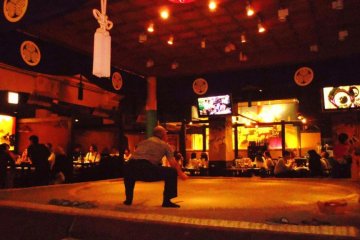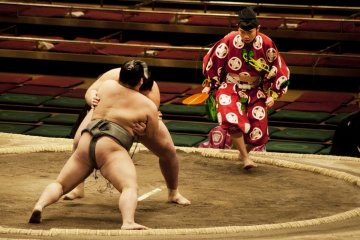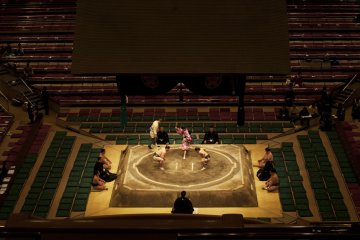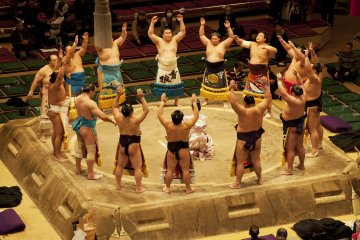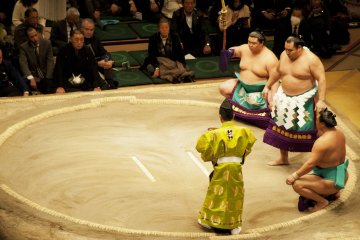Of the six Grand Sumo Tournaments held every year in Japan, three take place at Ryogoku Kokugikan in Tokyo, so if you are planning a trip to Japan, check the calendar and do not miss this event. I was able to attend a day of the January tournament: the advanced tickets were sold out, so I went by purchasing a general admission ticket, at a cost of ¥2200. Despite being far away from the ring, the seats reserved for general admission give a very good view.
Sumo has its roots many years ago: in fact, a Japanese legend says that the origin of the Japanese race depended on the outcome of a sumo match. In its 1500 years, sumo has retained intact the etiquette and rituals that characterize it. The ring is called the dohyo and it is revered as a sacred space: before each bout the wrestlers throw salt down, to purify the space and drive away any malicious spirits. Suspended from the ceiling over the dohyo is a roof resembling that of a shinto shrine, with four giant tassels hanging from the corners to signify the seasons of the year.
A Sumo wrestler wins the bout by forcing his opponent out of the ring or throwing him in the dohyo. On the last day of the tournament, the winner is awarded the Emperor's Cup.




